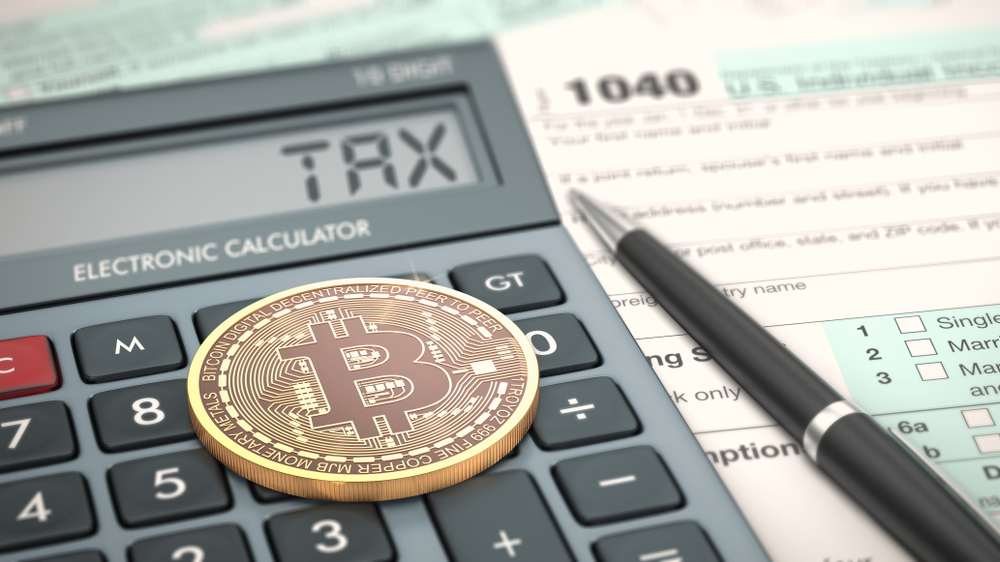The Cryptocurrency Phenomenon and Its Tax Implications
Cryptocurrency, a digital or virtual form of currency that uses cryptography for security, has taken the financial world by storm. Its decentralized nature, potential for high returns, and the promise of anonymity have attracted millions of investors worldwide. However, as with any financial endeavor, it’s crucial to understand the tax implications associated with it.
In the eyes of the Internal Revenue Service (IRS), cryptocurrency is not recognized as a true currency. Instead, it’s treated as property, much like a home or a stock. This classification has significant tax implications for those who trade, mine, or invest in cryptocurrency.
When a cryptocurrency is sold, the seller is required to pay capital gains tax on the difference between the selling price and the original purchase price. This is similar to how profits from selling a house or shares of stock are taxed. If the cryptocurrency is held for more than a year before selling, the gains are taxed at the long-term capital gains rate, which is typically lower than the short-term rate.
On the other hand, if a cryptocurrency is received as payment for goods or services, it’s treated as income. The recipient must report the fair market value of the cryptocurrency as income on their tax return. This value is then subject to income tax.
Mining cryptocurrency, which involves using computer resources to validate transactions and add them to a blockchain, also has tax implications. The IRS treats the mined cryptocurrency as income, and the miner must report the fair market value of the cryptocurrency as income on the day it was mined.
Understanding these tax implications is crucial for anyone involved in cryptocurrency. Failure to properly report cryptocurrency transactions can result in penalties and interest from the IRS.
Cryptocurrency in the Eyes of the IRS
The Internal Revenue Service (IRS) views cryptocurrency as property, not currency. This means that cryptocurrency transactions are taxed differently than traditional currency transactions.
When cryptocurrency is sold or exchanged, the seller may owe capital gains tax on the profit. The capital gain or loss is the difference between the selling price and the original purchase price. If the cryptocurrency has appreciated in value, the seller will owe capital gains tax. If the value has decreased, the seller may have a capital loss, which can be used to offset other capital gains and potentially reduce taxable income.
The rate at which capital gains are taxed depends on how long the cryptocurrency was held. If it was held for more than a year, it’s considered a long-term capital gain, which is typically taxed at a lower rate than short-term gains. If it was held for a year or less, it’s considered a short-term capital gain and is taxed at the same rate as ordinary income.
Even a simple exchange of one type of cryptocurrency for another can result in a capital gain or loss. This is because the IRS views this as two separate events: the disposal of one type of property and the acquisition of another.
The classification of cryptocurrency as property also means that it can be subject to property tax in certain jurisdictions. While this is not common, it’s something that cryptocurrency owners should be aware of.
It is important to understand the IRS’s view of cryptocurrency as property for anyone involved in cryptocurrency. This affects how transactions are reported and taxed, and can have significant implications for an individual’s overall tax liability.
Reporting Cryptocurrency Transactions – A Step by Step Guide
Cryptocurrency transactions, like any other financial transactions, need to be reported on your tax return. However, the process can be a bit more complex due to the unique nature of cryptocurrency.
Here’s a step-by-step guide to help you navigate this process:
- Keep detailed records of all your cryptocurrency transactions. This includes information about when and how much cryptocurrency was bought or sold, the value of the cryptocurrency in U.S. dollars at the time of the transaction, and any fees associated with the transaction. You can use a cryptocurrency tax software to help you keep track of your transactions.
- Determine whether each transaction resulted in a capital gain or loss. This is done by subtracting the cost basis (the original purchase price plus any associated fees) from the sale price. If the result is positive, you have a capital gain. If it’s negative, you have a capital loss.
- Report your capital gains and losses on your tax return. In the United States, this is typically done on Form 8949 and Schedule D of your federal tax return. Form 8949 is where you list details of each transaction, while Schedule D is where you total your gains and losses and calculate your tax.
- Report cryptocurrency received as payment for goods or services as income. The amount of income is the fair market value of the cryptocurrency at the time you received it. This should be reported on Schedule 1 of your federal tax return.
- Report cryptocurrency mined as income. The amount of income is the fair market value of the cryptocurrency on the day it was mined. This should be reported on Schedule C if you’re a self-employed miner or Schedule 1 if you’re not.
- Check the tax laws in your state to ensure you’re in compliance. Each state may have its own rules for taxing cryptocurrency.
Reporting cryptocurrency transactions can be complex, but with careful record-keeping and a good understanding of tax laws, it’s manageable.
Digging Deeper into the Tax Implications of Mining Cryptocurrency
Cryptocurrency mining is a unique process that involves using computer resources to validate transactions and add them to a blockchain. Miners are rewarded with new units of cryptocurrency, which can be a lucrative source of income. However, there are tax implications to consider.
When a miner successfully mines a new unit of cryptocurrency, it is considered taxable income. The amount of income is the fair market value of the cryptocurrency on the day it was mined. This value must be reported on the miner’s tax return and is subject to income tax.
In addition to the income from mining, miners may also realize a capital gain or loss when they sell the mined cryptocurrency. This is calculated in the same way as for any other cryptocurrency transaction, by subtracting the cost basis (the fair market value at the time of mining) from the sale price.
Miners can deduct expenses related to mining operations, such as the cost of electricity, computer equipment, and even a portion of rent or mortgage if a home office is used for mining. These expenses can be deducted on Schedule C of the tax return if the miner is self-employed, or as miscellaneous itemized deductions if they’re not.
However, it is important to note that the IRS has specific rules about what constitutes a business activity versus a hobby. If the mining is done as a hobby, the deductions may be limited. Miners should consult with a tax professional to ensure they’re correctly classifying their mining activity and taking the appropriate deductions.
Gifting Cryptocurrency and Taxation
Cryptocurrency, with its potential for high returns, has become a popular choice for gifts and donations. However, just like any other property, giving or receiving cryptocurrency can have tax implications.
When cryptocurrency is given as a gift, it’s not a taxable event for the giver or the recipient. This means that the giver does not have to pay taxes on the value of the cryptocurrency when they give it away, and the recipient does not have to pay taxes on the value of the cryptocurrency when they receive it. However, the recipient inherits the giver’s cost basis and holding period. This means that when the recipient eventually sells or exchanges the cryptocurrency, they will use the giver’s cost basis and holding period to calculate their capital gains or losses.
For example, if you were given cryptocurrency that was originally purchased for $100 and you later sell it for $500, you would have a capital gain of $400, even if the value of the cryptocurrency was $300 when you received it. This is because your cost basis is $100, which is the original purchase price of the cryptocurrency.
When it comes to donations, if you donate cryptocurrency to a qualified charitable organization, you won’t owe capital gains tax on the donation and you can deduct it as a charitable contribution on your tax return. The amount of the deduction is the fair market value of the cryptocurrency at the time of the donation, up to 50% of your adjusted gross income.
For example, if you donate cryptocurrency that is worth $100 to a qualified charity, you can deduct $100 from your taxes. This can lower your tax liability and save you money.
However, it’s important to note that these rules only apply if you’ve held the cryptocurrency for more than a year. If you’ve held it for a year or less, your deduction is limited to your cost basis in the cryptocurrency, not its fair market value.
For example, if you donate cryptocurrency that is worth $100 but you only held it for six months, you can only deduct $50 from your taxes. This is because your cost basis is $50, which is half of the fair market value of the cryptocurrency.
It’s important to consult with a tax professional to discuss the specific tax implications of giving or receiving cryptocurrency.
Minimizing Your Cryptocurrency Tax Liability – Strategies and Tips
As with any form of income or investment, it is natural to want to minimize one’s tax liability related to cryptocurrency. While the tax laws surrounding cryptocurrency can be complex, some strategies and tips can help.
One of the most effective strategies is to hold onto one’s cryptocurrency for at least a year before selling or exchanging it. This allows one to take advantage of the lower tax rates for long-term capital gains. If one sells or exchanges cryptocurrency that one has held for a year or less, any gain is considered short-term and is taxed at one’s ordinary income tax rate, which can be significantly higher.
Another strategy is to keep track of one’s cost basis for each unit of cryptocurrency. This includes the purchase price plus any associated fees. If one sells or exchanges some but not all of one’s cryptocurrency, one can choose to sell the units with the highest cost basis first, which can help minimize one’s capital gain and therefore one’s tax liability.
If one is a miner, one should consider operating as a self-employed individual or a business entity. This allows one to deduct expenses related to one’s mining operation, such as electricity and equipment costs. However, it is important to consult with a tax professional to ensure one is meeting all the requirements for self-employment or business operation.
Donating cryptocurrency to a qualified charitable organization can also help reduce one’s tax liability. One can deduct the fair market value of the cryptocurrency at the time of the donation, and one will not owe capital gains tax on the donation.
Finally, one should always keep detailed records of one’s cryptocurrency transactions. This includes dates, values, fees, and receipts. Good record-keeping can help one accurately calculate one’s capital gains and losses, and can be invaluable if one is ever audited by the IRS.
The Future of Cryptocurrency and Taxes – What to Expect
As the world of cryptocurrency continues to evolve, so too will the tax implications. Governments around the world are grappling with how to regulate and tax this new form of currency, and changes are likely on the horizon.
In the United States, the IRS has already begun to take steps to clarify the tax treatment of cryptocurrency. In 2019, it issued new guidance that addressed specific issues such as the tax treatment of hard forks and airdrops. It also began asking taxpayers to report their cryptocurrency transactions on their tax returns.
However, many questions remain unanswered. For example, how should cryptocurrency be treated for estate and gift tax purposes? What about the tax treatment of initial coin offerings (ICOs) and tokens? As these and other issues are resolved, the tax landscape for cryptocurrency will continue to evolve.
One thing is clear: the IRS is taking cryptocurrency seriously. It has begun enforcement efforts to ensure compliance with existing tax laws, including sending letters to taxpayers it suspects may have failed to report cryptocurrency transactions. It has also indicated that it will continue to focus on cryptocurrency in its enforcement efforts going forward.
Taxpayers who hold cryptocurrency should be aware of the potential tax implications and should consult with a tax advisor to ensure they are in compliance with the law.
Here are some additional things to keep in mind:
- You may be required to pay taxes on any gains you realize from selling cryptocurrency.
- You may also be required to pay taxes on any income you earn from cryptocurrency, such as interest or staking rewards.
- If you use cryptocurrency to pay for goods or services, you may be required to report the transaction to the IRS.
- If you lose cryptocurrency, you may be able to deduct the loss on your taxes.
It is important to keep good records of all your cryptocurrency transactions so that you can accurately report them to the IRS. You should also consult with a tax advisor to discuss your specific situation and how to comply with the tax laws.




